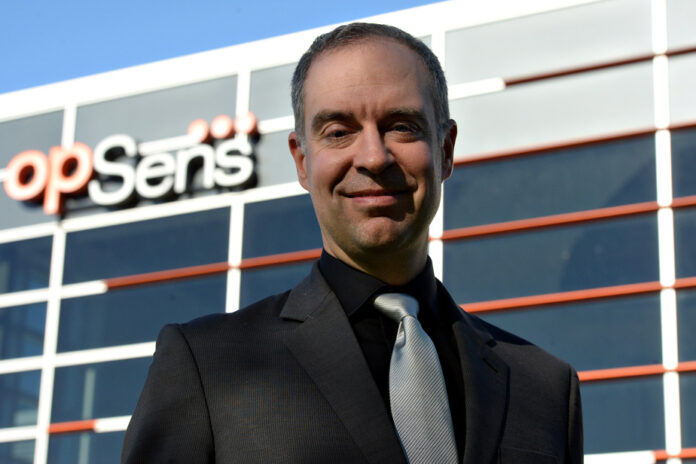A Boston firm is offering to buy the Quebec company specializing in medical instrumentation OpSens.
Founded in 2003 and installed in the Technology Park in Quebec, OpSens obtained authorization from Food last year
At $2.90 per share, US-based Haemonetics’ proposal represents a 50% premium to OpSens’ stock price as of the close of trading last Friday.
OpSens shares ended the week at $1.93 on Friday on the Toronto Stock Exchange, giving the company a market value of just over $220 million. Two years ago, OpSens stock peaked at over $3.70.
The six analysts who officially follow OpSens all recommended buying the stock before the deal was announced. Their average target price over a 12-month horizon is $3.54, the equivalent of an 84% appreciation from the stock price recorded when markets closed last Friday.
Haemonetics, whose shares are listed on the New York Stock Exchange, is a healthcare and medical products company with a market capitalization of almost five billion US dollars.
The SavvyWire guidewire from OpSens is presented as a unique 3-in-1 solution to deliver a prosthetic aortic valve, provide continuous pressure measurement during the procedure, and provide ventricular pacing that does not require auxiliary or venous access devices.
“The integration within Haemonetics should provide OpSens products with access to a world-class sales network,” comments OpSens CEO Louis Laflamme.
OpSens directors and officers control nearly 5% of the shares and support the transaction.
Analyst Justin Keywood of Stifel/GMP recently highlighted in a research note that SavvyWire opens the doors to a market that could allow OpSens sales to increase from 35 million to 100 million by 2025. .
He mentioned in particular that SavvyWire does the work of several products by reducing the duration of medical procedures.
According to observers, the recent approval of the Food
In the past, when patients had aortic valve problems, cardiologists would perform open heart surgery. “They would open the rib cage and go straight to work on the heart. The recovery period is long after such surgery. Catheter methods were developed to replace valves and that’s when the catheter replacement procedure gained popularity,” OpSens CEO Louis Laflamme explained to La Presse last year.
The number of transcatheter aortic valve replacement procedures is expected to double to exceed 400,000 worldwide in 2025 and more than 600,000 in 2030 due to the aging population and studies demonstrating its benefits to more people. of patients.
At 400,000 procedures, analyst Nicholas Cortellucci of the firm M Partners recently calculated that the value of the market would reach $10 billion.















